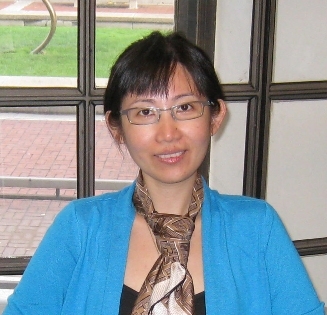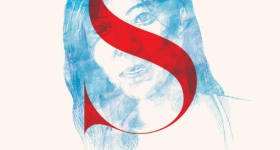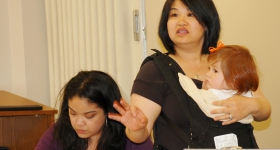At
the ComicCon 2012 convention in San Diego, Nickelodeon announced its plan to
extend the enormously popular show The Legend
of Korra
for another season. The show centers around the young Avatar Korra who must recognize
and master her powers as she fights to save her people from those in Republic
City seeking to destroy them. If you have yet to catch an episode of this
latest Avatar, it's worth checking out, not least to see how a mainsteam
popular American tv show imagines a legendary "Asian-ish" heroine. But
have the mythic narratives of Asia and its martial arts prowess changed much in
these past decades of multicultural awareness in China
and the US? Is Korra a more nuanced character than the
popular 1990s Disney-fied Mulan? Wen Jin, professor of English and Comparative
Literature at Columbia University, provides an analytical framework to address
questions like these in Pluralist
Universalism: An Asian Americanist Critique of U.S. and Chinese
Multiculturalisms.
In
her book, Wen Jin offers a kind of metaphoric and literal translation primer
for looking at multiculturalism: a way to consider narratives about things
Asian found in American popular culture. Jin focuses on contemporary Asian and
Asian American writers, the historical and social context for popular interest
in representations of Asians and Asian American characters, and the intellectual
theories that have shaped our understanding of concepts such as race, ethnicity
and nation.
When
Jin looks at the metaphoric translation of narratives from Chinese and American
writers, she does so not as a mere linguistic substitution of one language for
another. Instead, she interprets the multiple national histories and cultures
that make up the multiculturalisms of America and China. Jin
provides two such translations in her treatment of the popular fiction of American
writer Clive Cusser
and Chinese writer Jiang
Rong, which "concern
themselves with ethnic and racial issues in the other nation."

Wen Jin
Cusser's
Treasure of Khan (the nineteenth book
of a mega-selling series) charts the exploits of an American hero searching for
Xanadu. As Jin shows, Cusser employs the conventions
of the political thriller genre to mirror an ideal politics of US internationalism; interestingly, Cusser's
depiction of US
politics resembles some of the nationalistic ideals imagined in Jiang's Lang Tuteng:
The ideal world order projected in Lang Tuteng,
just like the fantasized America
in Treasure of Khan, speaks to our
times. It serves implicitly to project an image of China as a promoter of world
harmony rather than a newly anointed global power concerned only with advancing
its own interests, grabbing for energy and resources in unscrupulous ways.
But while Jin's take on these
geo-political potboilers is illuminating, Jin is even better with more literary
examples, such as Maxine Hong Kingston's reworking of the story of Mulan against
a Cold War historical backdrop. Jin also excels in her analysis of Zhang
Chengzhi, a Muslim writer whose depiction of a suborder of Sufism casts into
relief the binary conflict of the Han (the ethnic majority) and the Manchu (the
ruling minority) in eighteenth- and nineteenth-century China. For the most
part, Jin chooses her authors and works well, enabling her to expand on her
themes and explore the depiction of dynamic ethno-religious communities,
politics and nationalism, sexuality, and the sex trade in America and China.
However,
Jin's attempts to illuminate different cultural perspectives in the context of
actual literary translation are less successful. While Jin draws welcome
attention to some deserving works by Asian and Asian American authors, and
nobly exposes crude interpretations (such as the depiction of the title
character in the English-language version of Yan Geling's Fusang as an oversexualized Asian woman), Jin's questions about the
novel's reception and translation risk stating the obvious. (Aren't works in
translation typically interpreted differently by different audiences and
received differently by different critics?) One longs for Jin to return to her
focus on non-literal works in translation where her arguments are deeper and
more persuasive.
Translations
from one culture to another begin with encounters, and world literature is
riddled with references to and about people of one nation coming into contact
with -- and often, either conquering or being conquered by -- people of other
nations. In providing this book as a
translation primer, Jin offers a useful examination
of these undervalued works of fiction.
Readers
undaunted by Jin's (at times difficult to penetrate) academic prose will
appreciate both her analytical framework and her thoughtful engagement with
some unusual and compelling literary works. With the upcoming Legend of Korra's second season upon us,
readers that have taken time to consider Jin's work can imagine the ways in
which multicultural characters like Korra embody the cultural and political
tensions of American and Chinese nationalistic ideals.
Jee Yoon Lee teaches at the George Washington University and maintains
the blog writinglikeanasian.blogspot.com.









Comments